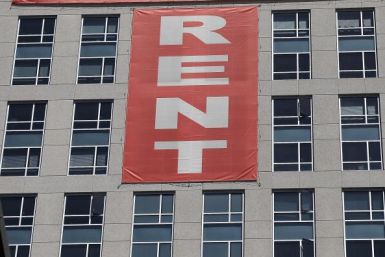Investment: Big Global Investors Cold On Europe, Like Asia
Big global and regional fund managers continued to dump European shares in July, but were more optimistic about Japan and Chinese growth.
The monthly Bank of America Merrill Lynch fund managers' survey for July shows that many investors remain worried and overweight cash, although that has fallen from June, and others have lifted their exposure to equities.
But with European leaders meeting overnight to once again try and nail down a second Greek bailout once and for all, it's no wonder that the continuing European sovereign-debt crisis is by far the biggest worry for fund managers, with nearly two-thirds citing it as the top global risk to recovery.
The spreading crisis has left respondents more pessimistic about the European economy than at any time since April 2009, with a net 22% saying they expect growth to weaken over the next year.
"Investors have acted decisively in response to recent developments in EU [European Union] sovereign funding. The question is whether euro-zone equities have been oversold," said Gary Baker, head of European equities strategy at Bank of America Merrill Lynch Global Research said in the release of the survey's details.
The monthly report surveyed asset managers with a combined $ US 631 billion under management, over the period July 8 to 14.
Some 64% of managers believe the European sovereign debt crisis poses the largest tail risk, up from 43% in June.
The slumping confidence in Europe was seen particularly in bank stocks, where a net 57% of respondents were underweight - the worst reading since February 2009.
And European banks, who are in the firing line over the second Greek bailout and worries about Spain and Italy in particular, are being shunned by big investors.
European investors have sharply reduced positions across many sectors, but the most eye-catching position is in banks.
The survey shows a net 57% of the European panel is now underweight banks (versus 33% in June), leaving the sector at its lowest ebb since February 2009.
As the eurozone suffers, Japan and Global Emerging Markets are the regions with the greatest positive sentiment momentum.
In fact economic expectations for China, have improved sharply over the last month, leaving a net 35% of respondents overweight in their exposure to the country, up from less than 20% in June.
A big increase and no doubt due to the better than expected June quarter and monthly economic data released last week.
And a net 24% of fund managers in the survey believe that China will slow in the next year, down from a net 40%, an equally big turnaround in sentiment.
And Japan is back in favour (as yesterday's trade data for June confirmed).
In fact the swing back to Japan has been nothing short of dramatic.
A net 22% managers had been underweight Japanese shares in June, but that swung to a net 2% overnight this month.
That's the biggest change in sentiment in Japan for eight years.
And confidence among Japanese fund managers has soared with a net 76% of respondents now expecting corporate earnings to improve in the next 12 months, up from a net 54% in June.
A net 56% still believe that Japanese equities are undervalued.
Overall, a net 33% of asset allocators were overweight Global Emerging Markets equities this month, a rise of 10 percentage points since June.
Looking ahead, Global Emerging Markets is the region investors would most like to overweight.
This renewed confidence in Global and Emerging markets (GEM) helped boost the global economic outlook which remains positive in spite of the sharp deterioration in investor sentiment towards and within Europe.
A net 19% of global fund managers and asset allocators believe that the global economy will strengthen in the next 12 months.
This number has grown for two successive months from a net 10% in May.
The global outlook for corporate profits has also risen with a net 11% of investors predicting higher global corporate profits in the coming year, up from a net 7 % in June.
While respondents to the global survey have cut positions in eurozone equities, they have increased them in every other region, including the US, despite the debt ceiling concerns.
While emerging markets remained the most favoured region, with a net 33% of investors overweight the sector, the US was the second most favoured region with 23% of investors overweight.
And despite continuing concerns about the state of the economy desire for a third round of quantitative easing (QE3) from the US Federal Reserve remains low. Some 40% of respondents said in July that they are not expecting QE3.
But 48% of the panel says that QE3 will be necessary if the S&P 500 falls by 20% from its current level around 1320.
Expectations for the timing of the first interest-rate hike from the fed have been were pushed back further in the latest survey.
The first quarter of 2012 remains the most likely date for the Fed to start tightening, but 21% of respondents don't expect any increase in US rates before the first quarter of 2013.
Only a net 6% of respondents expect a rate hike this year, down from 69% as recently as April.
Copyright Australasian Investment Review.
AIR publishes a weekly magazine. Subscriptions are free at www.aireview.com.au






